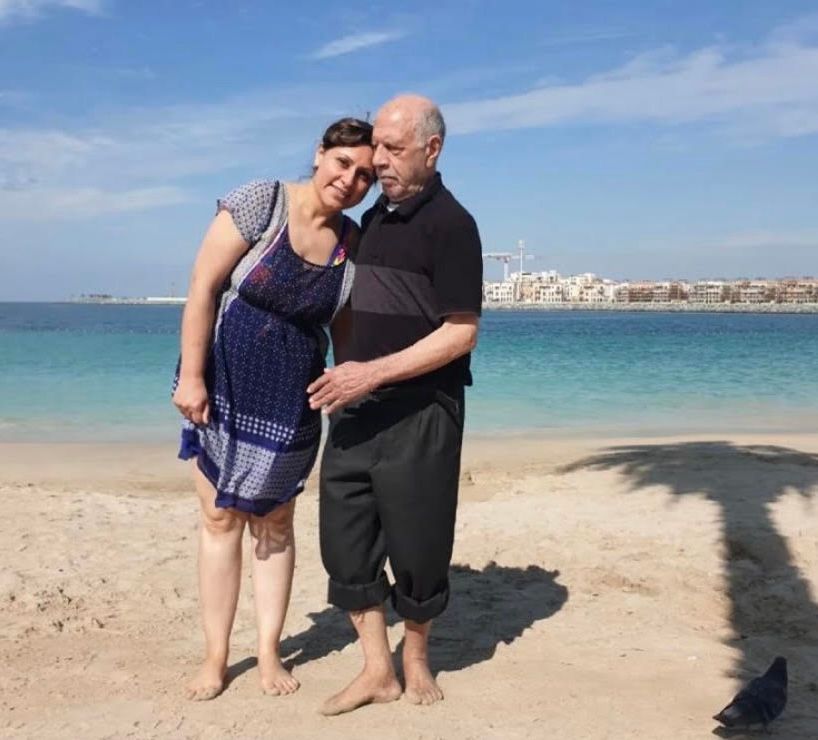Grief and Loss

What is Grief?
Grief is a complex and multifaceted emotional response to loss. It is a natural and normal reaction that occurs when someone experiences the death of a loved one, the end of a significant relationship, or any other significant life change that involves losing something or someone important. Grief is not just about feeling sad; it encompasses many emotions, including sadness, anger, guilt, disbelief, and sometimes relief.
Grief can affect people differently and vary in intensity and duration. For some, grief may last for a short period, while for others, it may persist for months or even years. The grieving process is highly individual and can be influenced by various factors, including cultural and religious beliefs, personal resilience, the nature of the loss, and the support system available to the grieving person.
Grief is not something to be "fixed" or "cured." Instead, it is a process of adapting to the loss and finding ways to move forward while carrying the memory of what was lost. Over time, the intensity of grief may lessen, but the sense of loss may always be present in some form.
How Does Grief Impact Your Anatomy and Health?
Emotionally, grief can lead to symptoms of depression, anxiety, and a sense of profound loneliness or emptiness. It can also impair cognitive functions, leading to difficulties with concentration, memory, and decision-making.
Physically, grief can manifest in a range of symptoms. Some individuals might experience fatigue, changes in appetite, or disrupted sleep patterns, often leading to insomnia or excessive sleeping. The stress of grief can also weaken the immune system, making one more susceptible to illnesses.
Moreover, grief has been linked to increased risks of certain health conditions. For example, the emotional stress of grief can elevate blood pressure and contribute to heart problems, sometimes referred to as “broken heart syndrome” or stress-induced cardiomyopathy. Chronic grief, or complicated grief that persists without relief can lead to long-term health issues such as cardiovascular disease, digestive disorders, and chronic pain conditions.
Causes and Risk Factors for Grief
Grief is a universal experience that can affect anyone, but certain groups may be more at risk for experiencing intense or prolonged grief. These include:
- Death of a Loved One: The most recognised cause of grief involves the loss of a family member, friend, or pet.
- Divorce or Relationship Breakdown: The end of a significant relationship, whether through divorce, separation, or breakup, can lead to intense feelings of loss.
- Serious Illness: A diagnosis of a terminal or chronic illness in oneself or a loved one can lead to anticipatory grief as individuals begin to mourn the impending loss.
- Loss of Employment: Losing a job can lead to feelings of insecurity, loss of identity, and financial instability, all of which contribute to grief.
- Miscarriage or Stillbirth: The loss of a child during pregnancy or at birth can cause profound grief for parents and families.
- Loss of Independence: Aging, injury, or illness that results in a loss of independence or the need to rely on others can lead to grief over the life changes.
- Moving or Relocation: Leaving behind a familiar home, community, or country can create a sense of loss, especially if the move is involuntary.
- Loss of Financial Stability: Significant financial hardship or bankruptcy can lead to a loss of security and future plans, which can cause grief.
- Loss of a Dream or Expectation: When life doesn’t turn out as planned, such as being unable to have children, not achieving career goals, or losing a long-held aspiration, it can cause grief.
Symptoms of Grief
The symptoms of grief and loss can be wide-ranging and affect individuals in different ways. Common symptoms include:
- Emotional Symptoms:
- Sadness: Persistent feelings of deep sorrow and a sense of emptiness.
- Anger: Feeling irritable or resentful, sometimes directed at the loss, oneself, or others.
- Guilt: Experiencing regret or feeling responsible for the loss, even if irrational.
- Anxiety: Worrying about the future or feeling overwhelmed by the uncertainty.
- Shock and Disbelief: Struggling to accept the reality of the loss, especially in the early stages.
- Physical Symptoms:
- Fatigue: Feeling constantly tired or drained of energy.
- Sleep Disturbances: Insomnia, trouble staying asleep, or sleeping excessively.
- Changes in Appetite: Loss of appetite or overeating, often leading to weight changes.
- Physical Pain: Headaches, stomachaches, or other unexplained physical discomfort.
- Weakened Immune System: Increased susceptibility to illnesses due to stress.
- Cognitive Symptoms:
- Difficulty Concentrating: Trouble focusing on tasks or making decisions.
- Forgetfulness: Memory problems or absent-mindedness.
- Confusion: Feeling disoriented or unable to think clearly.
- Behavioural Symptoms:
- Social Withdrawal: Avoiding social interactions and isolating oneself.
- Crying Spells: Frequent bouts of crying, sometimes without a clear trigger.
- Changes in Routine: Disruption of normal daily activities or neglecting responsibilities.
How Can Grief Be Prevented?
Preventing grief is not about avoiding these natural experiences but mitigating their impact and healthily managing the process. Here are some strategies:
- Build Strong Support Networks: Emotional support during a loss can come from a circle of friends, family, or a support group.
- Practice Self-Care: Regular exercise, a balanced diet, and sufficient sleep can help maintain physical and mental well-being during difficult times.
- Seek Professional Help: Engaging with a therapist or counsellor, particularly one experienced in grief counselling, can help navigate complex emotions.
- Develop Healthy Coping Mechanisms: Learning stress-management techniques, such as mindfulness, meditation, or journaling, can help process emotions constructively.
- Plan for Life Transitions: While not all losses can be anticipated, preparing for life changes like retirement, moving, or even the death of an elderly relative can help reduce the shock and impact.
- Stay Connected: Keeping in touch with others and maintaining social connections can prevent the isolation that often exacerbates grief.
- Educate Yourself About Grief: Understanding the grieving process and knowing that it is a normal part of life can help you accept and manage it when it occurs.
Types of Grief
Grief can manifest in various forms, depending on the nature of the loss and the individual’s response. Some of the types include:
- Normal Grief: This is the typical response to loss, where emotions fluctuate and gradually diminish in intensity over time. Individuals eventually find a way to adapt to the loss.
- Anticipatory Grief: This occurs when a loss is expected, such as when a loved one is terminally ill. People may begin grieving before the actual loss occurs.
- Complicated Grief: Sometimes called prolonged grief disorder, this type involves intense, long-lasting grief that interferes with daily life. The individual may struggle to accept the loss and feel stuck in mourning.
- Disenfranchised Grief: This occurs when the loss is not socially acknowledged or publicly mourned, such as the death of a pet, the loss of a relationship, or the grief experienced by a mistress after the death of a partner.
- Cumulative Grief: This occurs when multiple losses happen in a short period, leading to compounded grief that can feel overwhelming.
- Masked Grief: In this type, the individual does not recognise their behaviours or physical symptoms related to grief. For example, they may develop unexplained physical ailments or engage in risky behaviours without realising it is a response to a loss.
- Delayed Grief: This occurs when the emotional response to loss is postponed or suppressed, sometimes resurfacing much later, triggered by another event or stressor.
- Exaggerated Grief: In this type, the grief response is so intense that it leads to extreme behaviours or psychiatric conditions like severe depression or anxiety.
Stages of Grief and Loss
The stages of grief and loss are often described using the Kübler-Ross model, which outlines five stages that individuals may go through after experiencing a loss. It’s important to note that not everyone will experience all of these stages, nor will they necessarily occur in a specific order. Grief is a unique process for each person.
- Denial: This stage involves disbelief and shock. Individuals may find it hard to accept the reality of the loss and might think, "This can’t be happening." Denial serves as a defence mechanism to numb overwhelming emotions and protect oneself from immediate pain.
- Anger: As denial fades, the pain of the loss surfaces, often leading to anger. This anger might be directed towards others, oneself, or the situation. Questions like “Why me?” or “Who is to blame?” are common, and the individual may feel frustration and helplessness.
- Bargaining: In this stage, individuals might dwell on “what if” or “if only” statements. They may try negotiating with themselves or a higher power, hoping to reverse or reduce the loss. It’s a way of trying to regain control or delay the inevitable.
- Depression: The sadness of the loss becomes prominent in this stage. The individual may experience deep sorrow, regret, fear, and loneliness. This is a natural and necessary stage of grieving, where the reality of the loss is fully acknowledged.
- Acceptance: Acceptance does not mean being “okay” with the loss but acknowledging it and learning to live with it. In this stage, individuals start to find ways to move forward and adapt to life without what was lost. It’s about finding a new normal.
Diagnosis of Grief
Grief itself is not typically classified as a medical condition, but its impact on mental and physical health can be significant. Diagnosis usually involves assessing the symptoms and the duration of the grief response. Mental health professionals will evaluate the following:
- Duration of Symptoms: Grief that lasts for an extended period without signs of improvement, typically beyond six months, may be diagnosed as complicated grief or prolonged grief disorder.
- Severity of Symptoms: If grief severely impacts daily functioning, causing issues such as the inability to maintain relationships, work, or self-care, a more serious condition may be diagnosed.
- Presence of Other Mental Health Issues: If the grief is accompanied by depression, anxiety, or post-traumatic stress disorder (PTSD), these conditions may also be diagnosed and treated.
- Patient History: The healthcare provider will review the individual’s personal history, including any previous experiences with loss, mental health history, and current support systems.
Treatment of Grief and Loss
Treatment for grief and loss focuses on helping individuals cope with their emotions, process the loss, and eventually adapt to life without the person or thing they have lost. Common treatments include:
- Counselling and Psychotherapy:
- Grief Counseling: Provides support and guidance, helping individuals navigate the grieving process.
- Cognitive Behavioral Therapy (CBT): Helps in restructuring negative thought patterns and promoting healthier coping mechanisms.
- Complicated Grief Therapy (CGT): A specific type of therapy designed to address prolonged grief and help individuals adapt to the loss.
- Support Groups: Joining a grief support group can offer comfort through shared experiences and provide a sense of community and understanding.
- Medication: In cases where grief is accompanied by severe depression, anxiety, or other mental health issues, antidepressants or anti-anxiety medications may be prescribed to help manage symptoms.
- Mindfulness and Relaxation Techniques: Mindfulness meditation, yoga, or deep-breathing exercises can help reduce stress and promote emotional well-being during grieving.
- Journaling and Creative Outlets: Writing down thoughts and feelings or engaging in creative activities like art or music can be therapeutic, helping individuals express and process their emotions.
- Physical Activity: Regular exercise can help alleviate symptoms of depression and anxiety, improve sleep, and boost overall mood, making it a valuable tool in managing grief.
What if Grief is Untreated?
Untreated grief can have significant and long-lasting effects on an individual’s mental, emotional, and physical health, including.
- Chronic Mental Health Issues
- Social Isolation
- Physical Health Problems
- Substance Abuse
- Impaired Daily Functioning
- Risk of Complicated Grief
Addressing grief and loss through appropriate support, counselling, and treatment can help individuals process their emotions, adapt to their new reality, and eventually find a path to healing and recovery.
About
Conditions
Treatments
All Rights Reserved | A Peace Corner

